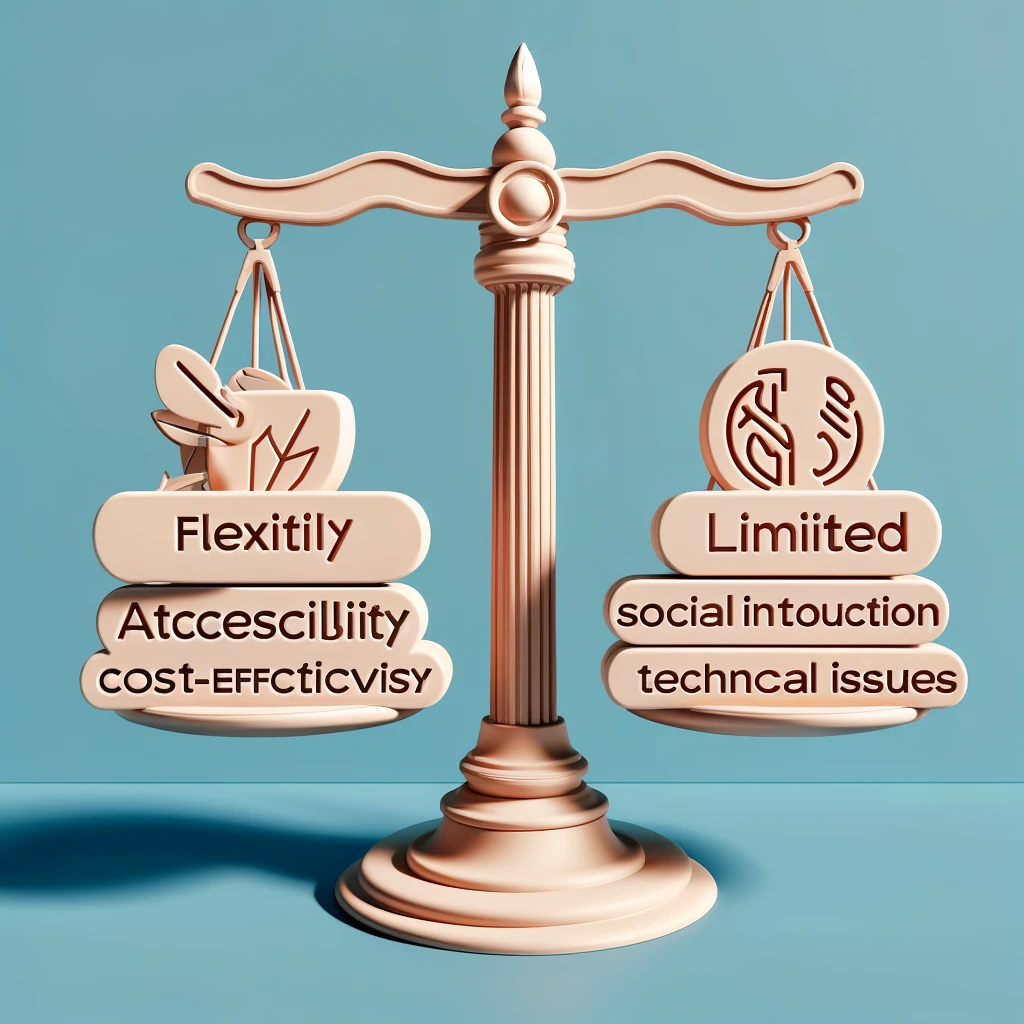Online education has transformed the way people learn, offering unparalleled flexibility and access to a wealth of resources. However, it also presents unique challenges. Here, we explore the evolution of online education, its benefits, and its drawbacks.
The Rise of Online Education
Early Beginnings
Online education began in the late 20th century with the advent of the internet. Early courses were simple, text-based lessons that provided basic distance learning. As technology advanced, so did the capabilities of online education platforms, incorporating multimedia elements, interactive content, and real-time communication tools.
Modern Online Learning
Today, online education has evolved into a sophisticated system that includes Massive Open Online Courses (MOOCs), degree programs, and professional certifications. Platforms like Coursera, edX, and Udemy offer courses from top universities and institutions, making high-quality education accessible to millions worldwide.
Pros of Online Education
Flexibility and Convenience
One of the most significant advantages of online education is its flexibility. Students can learn at their own pace and schedule, making it ideal for working professionals, parents, and anyone with a busy lifestyle. This flexibility allows learners to balance their education with other responsibilities.
Accessibility

Online education breaks down geographical barriers, allowing students from remote areas to access high-quality education. This democratization of learning resources helps bridge the gap between urban and rural education, providing opportunities for those who might otherwise be excluded.
Variety of Courses
Online platforms offer a vast array of courses across different fields and disciplines. Whether you are interested in computer science, arts, business, or health, there is likely a course available online. This variety allows learners to explore new interests and acquire diverse skills.
Cost-Effectiveness
Online education is often more affordable than traditional in-person learning. Tuition fees for online courses are generally lower, and students save on commuting, housing, and other associated costs. Many platforms also offer free courses, further reducing financial barriers to education.
Self-Paced Learning
Self-paced learning allows students to progress through courses at their speed, which can be particularly beneficial for mastering difficult subjects. This approach accommodates different learning styles and paces, making education more personalized.
Cons of Online Education
Limited Social Interaction
One of the primary drawbacks of online education is the lack of face-to-face interaction. Traditional classrooms offer opportunities for socialization, group work, and networking, which are limited in an online environment. This can affect the development of communication and teamwork skills.
Requires Self-Discipline
Success in online education requires a high level of self-discipline and motivation. Without the structure of a traditional classroom, some students may struggle to stay focused and complete their coursework. Time management skills are crucial for online learners.
Technical Issues
Online education relies heavily on technology, which can pose challenges. Students need reliable internet access and devices capable of handling online coursework. Technical difficulties, such as software glitches or connectivity issues, can disrupt learning and cause frustration.
Perception and Recognition
Despite its growth, online education still faces skepticism regarding its credibility and recognition. Some employers and institutions may view online degrees and certifications as less valuable than those earned through traditional means. However, this perception is gradually changing as more reputable institutions offer online programs.
Limited Hands-On Experience
Certain fields of study require hands-on experience and practical training, which can be challenging to replicate online. Labs, workshops, and clinical experiences are integral to disciplines like medicine, engineering, and the arts, and these components may be limited in online programs.
